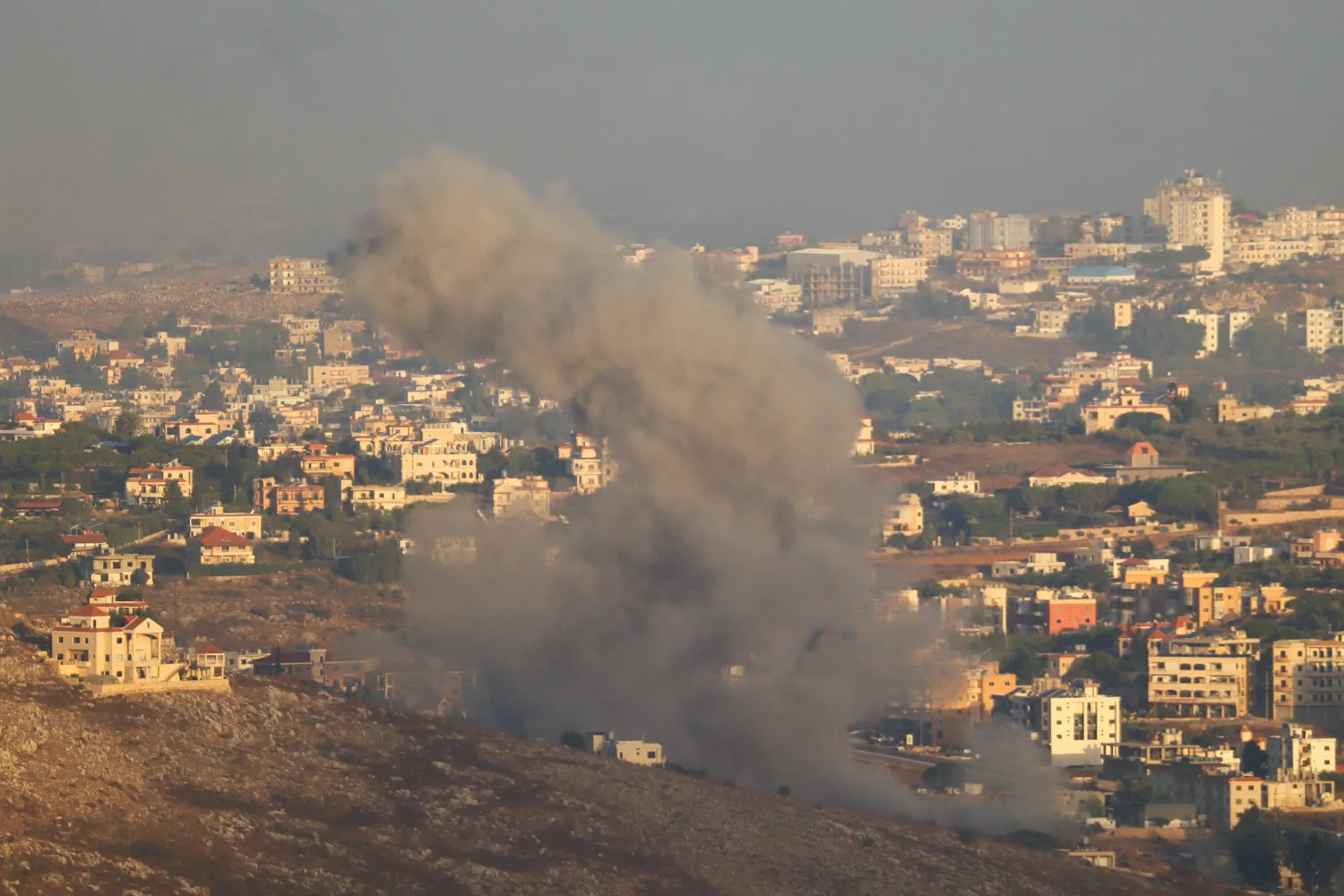The Israeli military said on Monday it was conducting extensive strikes against targets of the Iranian-backed Hezbollah movement in Lebanon, which come amid some of the heaviest cross-border exchanges of fire in nearly a year of conflict.
The military gave no further details of the strikes.
Israeli military spokesperson Daniel Hagari called on residents of south Lebanon to keep away from Hezbollah posts. He said Israel began striking Hezbollah posts in Lebanon after identifying an intention to fire on Israel.
Israeli warplanes carried out an intense wave of air strikes on towns along Lebanon’s southern border and even further north on Monday morning, according to Reuters witnesses.
Reuters reporters in the southern port city of Tyre could hear warplanes flying low over southern Lebanon and hear a series of air strikes nearby.
Hezbollah's al-Manar television reported Israeli airstrikes targeting the outskirts of many towns and villages in the south and the Bekaa Valley in eastern Lebanon. Footage showed columns of smoke rising over the south.
Hezbollah and Israel exchanged heavy fire into Sunday, as the Lebanese militant group sent rockets deep into northern Israeli territory after facing intense bombardment.
Hezbollah deputy chief Naim Qassem told mourners at the funeral of one of the group's commanders killed last week in Beirut: "We have entered a new phase, the title of which is the open-ended battle of reckoning."
Israeli Defense Minister Yoav Gallant said operations would continue until it was safe for evacuated people on his side of the border to return - also setting the stage for a long conflict as Iran-backed Hezbollah has vowed to fight on until a ceasefire in the parallel Gaza war.
The conflict - which has escalated sharply in the past week - has raged since Hezbollah opened a second front against Israel, saying it was acting in support of Palestinians facing an Israeli offensive further south in Gaza.
On Tuesday and Wednesday, thousands of pagers and walkie-talkies used by Hezbollah members exploded. The attack was widely blamed on Israel, which has not confirmed or denied responsibility.
Israeli Military Says it is Striking Hezbollah Targets in Lebanon

Smoke billows from the site of an Israeli airstrike on the outskirts of the southern village of Habbouch on September 23, 2024. (Photo by Rabih DAHER / AFP)

Israeli Military Says it is Striking Hezbollah Targets in Lebanon

Smoke billows from the site of an Israeli airstrike on the outskirts of the southern village of Habbouch on September 23, 2024. (Photo by Rabih DAHER / AFP)
لم تشترك بعد
انشئ حساباً خاصاً بك لتحصل على أخبار مخصصة لك ولتتمتع بخاصية حفظ المقالات وتتلقى نشراتنا البريدية المتنوعة







